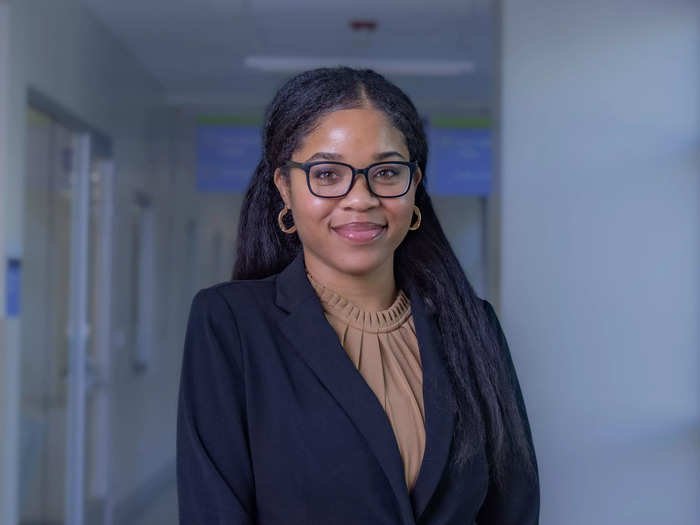This as-told-to essay is based on a conversation with Janika Cook, a 28-year-old data analyst in Cleveland. It has been edited for length and clarity.
I graduated from high school in 2014 and felt like my only option was to go to college, so I enrolled at Ohio University as a political science major.
I only attended classes for a year before my family couldn’t pay the outstanding tuition balance — even with the $10,000 in loans I took out for living expenses — so I had to unenroll and move from Athens back to Cleveland, where I’m from.
I started working 40 hours a week at Chick-fil-A, and a few months later, I enrolled in a community college as a political science major again because I still wanted to make college work.
I took out more loans, but I was also getting financial aid, and to continue to qualify, I had to complete a certain number of classes. I wasn’t getting satisfactory grades because I was also working and overwhelmed with juggling both work and school. I stopped qualifying for aid.
I went back and forth for eight years in that cycle and ultimately took out $25,000 in student loans but didn’t graduate. Sometimes, I would have money to pay out of pocket for community college classes, but not always.
I tried to get internships, but many were unpaid. It felt like a double-edged sword where I didn’t have the experience or education to progress in my career, but it was also difficult to get that experience unpaid while needing to work.
In the summer of 2022, I saw an ad on TikTok for Multiverse, a company that provides paid apprenticeships to those looking for careers in tech.
I kept scrolling, but a couple of days later, I saw the same video again and decided to look into it more because, at the time, I was underemployed doing DoorDash and looking for a new opportunity.
Initially, it sounded too good to be true because it was free, and you didn’t need any experience to get started. I felt like there had to be a catch. I set up an info session, and it turned out to be exactly what I was looking for.
After holding some data-focused positions at nonprofits, my interest in data grew and I wanted to gain experience with more technical data roles. I signed up for the advanced analytics apprenticeship program.
Within a few weeks, I interviewed with Intermountain for a data analyst position. I got an offer for a $55,000 base salary and started my 12-month apprenticeship with a cohort of about 30 people.
Many of the people in my cohort are people of color, and I liked that Multiverse focuses on helping people of color gain skills needed for tech jobs.
During the program, we met with a data coach for a couple of hours every month, and the rest of the time, we learned on the job. It worked well that we could learn something from our data coach one day and start implementing it at work the very next day.
I graduated from the program last summer and received a full-time offer for a $67,000 base salary with the company I apprenticed with. I’m still working there now, but I’m on a different team at Castell, a company owned by Intermountain.
My colleagues and I try to lower medical costs and improve patient outcomes. Helping people motivates me, and I use data to do it, which is really cool. I see myself staying at this company for a long time. I also enjoy that I’m still learning every day, and the company fosters professional development.
I’m making more than I’ve ever made. It’s been life-changing to be able to pay my bills and start paying off my student loans, which I’ve already gotten down to under $22,000. I’m paying a few hundred dollars a month, and I’m hoping to be able to pay them off in the next few years.
My company also gives us money toward additional education, so I’m considering getting my data analytics degree. My local community college has a new program I’d like to start in the fall.
I wish I had known when I graduated from high school that apprenticeships were an option. I think they’re great for people who don’t learn as well in the classroom and instead learn better on the job and with hands-on projects.
I’ve realized there’s no age limit to change your career. Through this program, I’ve met people who are 50 or 60 years old completely turning their careers around. You can always start over and try something new — even if you’ve spent five or 10 years going toward a certain path, you can pivot and do something else if it’s not working.
While I do think I gained things from going to college — mostly interpersonal skills like how to work with others, resolve conflict, and work on a team — I think I could’ve also gained those skills in my career. I don’t think I retained much of the classroom knowledge I learned in college, and I wish I had pursued an apprenticeship earlier.
Advertisement
POPULAR CATEGORIES
